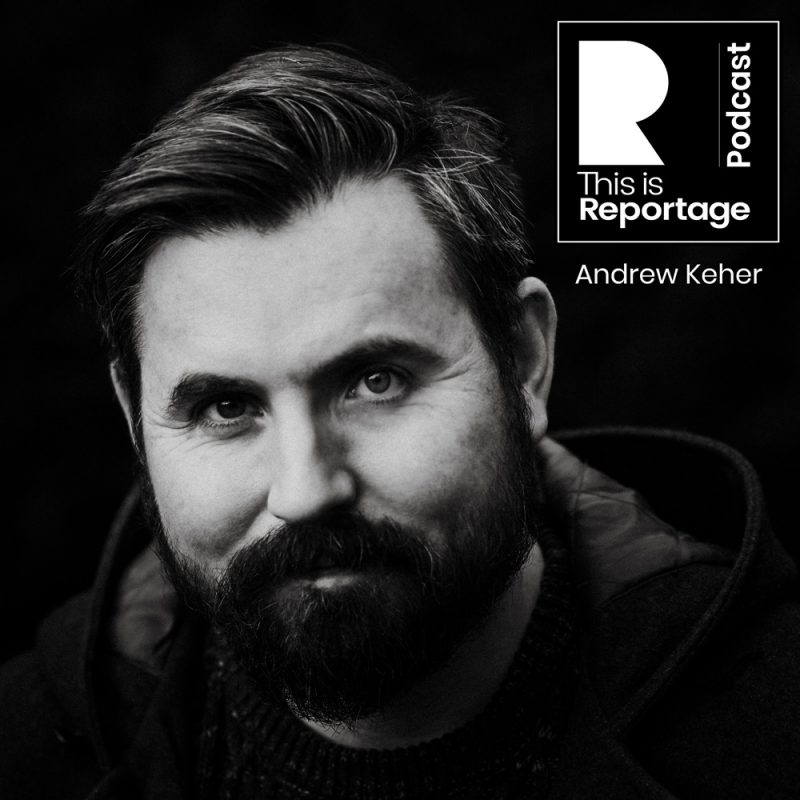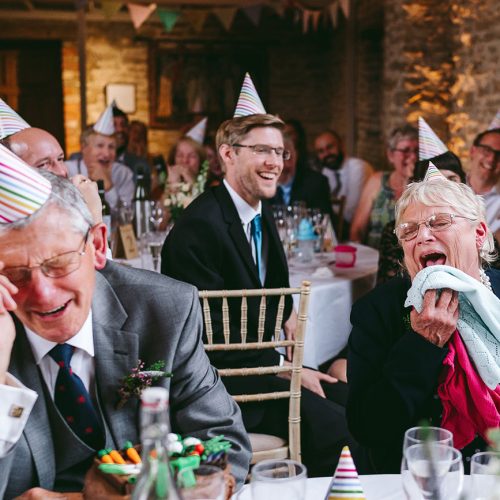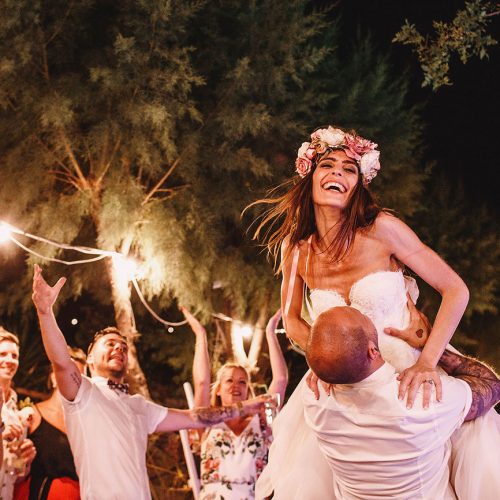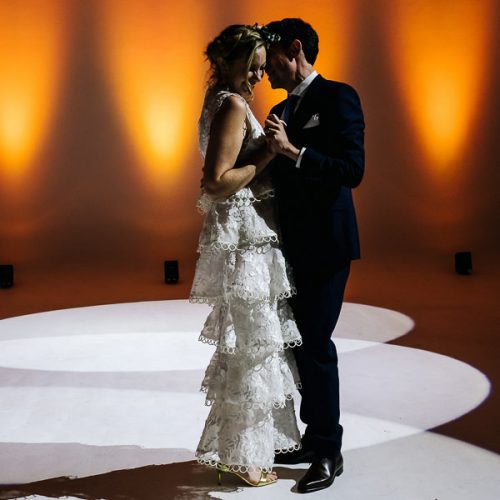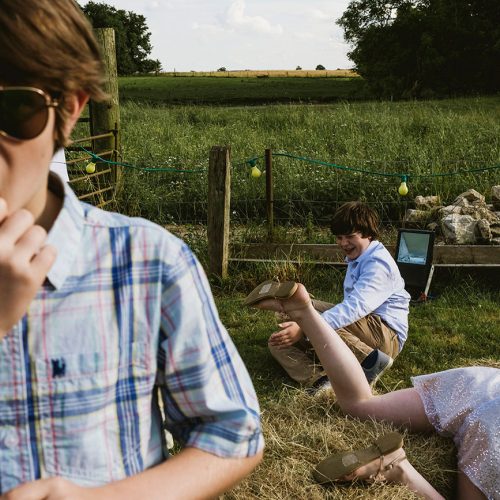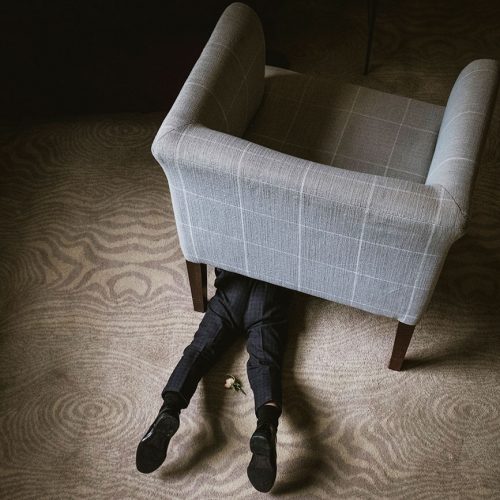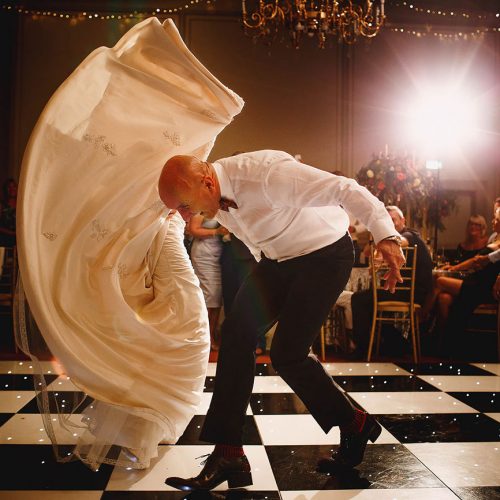Podcast Episode 9: This is Andrew Keher
So excited to have the fantastic Andrew Keher on the Podcast for Episode 9! Eight-time TiR Award winner, Andrew has made our Top Photographers of the year for both 2018 and 2019 (you can see our recently-released Top 100 Photographers of 2019 here) which is a remarkable feat. Our interview with Andrew for this Podcast is extremely interesting, with Andrew talking openly and honestly about such things as:
how to pronounce his surname, his school life growing up in Liverpool, wanting to be a police officer, the story of how he went from a 9 to 5 office job to becoming a wedding photographer (a really great story, involving a viral video and a film crew!), teaching himself photography through YouTube and the internet, how workshops really helped him, approaching his first bride, how having passion and energy for something means you can make it a career, inheriting his Dad’s sense of humour, Evil Dead and being Ash, how a recent regret of his photography career changed his attitude, the story of how he took a very funny Reportage Award, his top tips for getting better at documentary wedding photography, shooting through the moment, making each frame as interesting as possible, how much he likes and values the Story Awards, how they help him in his own blogging, and much more…
There are all the usual ways of listening to this episode: iTunes, Spotify, Google Podcasts and here within this post. There is also a full transcript of our Andrew Keher interview here if you prefer to read, rather than listen to his semi-Scouse dulcet tones…
Alan Law: Hey, Andrew. How’re you doing?
Andrew Keher: Good morning, Alan. I’m okay. How are you?
Alan Law: I am really good. Thank you. Yeah. Yeah. How’s things with you?
Andrew Keher: Not too bad. Not too bad. It’s a bit cold this morning. I’ve got an extra base layer on. My office is the coldest room in the house.
Alan Law: Why is that?
Andrew Keher: She doesn’t let me put the heating on, because I work from home like most of us. The heating going on is an unacceptable expense when I’m by myself. “Two Jumpers Andy”, they call me.
Alan Law: You’ll have another one for Christmas I guess, as well.
Andrew Keher: Yes. I’m looking forward to the socks, the underpants, and the jumper. Hang in there, lads, we’re almost there, Christmas day.
Alan Law: Nice. Cool. Cool. Good stuff. Instead of asking you how your season’s been going, I’ll get onto that at some point, but I want to start with probably the most important question I think I can ask you is that how on earth do you pronounce your surname?
Andrew Keher: You’re not the only person to struggle with that, Alan. That’s a problem that’s plagued me all my life. It’s character building. I remember being six years old in class when the teachers read the names out and there’s that big pause before it gets to the K’s. I’ve learned now these days whenever there’s a list being read out I just put my hand up when the pause is there. It’s Keher to rhyme with beer.
Alan Law: Ah. Okay. That’s a good way to remember it.
Andrew Keher: Although, when I was in school the kids found much less friendly words to rhyme with it, let me tell you.
Alan Law: Oh, okay. Yeah. That must have been quite difficult.
Andrew Keher: It was a different era. It was a different era. These days, I’m sure it’d be fine. It builds character, as I say. Builds character.
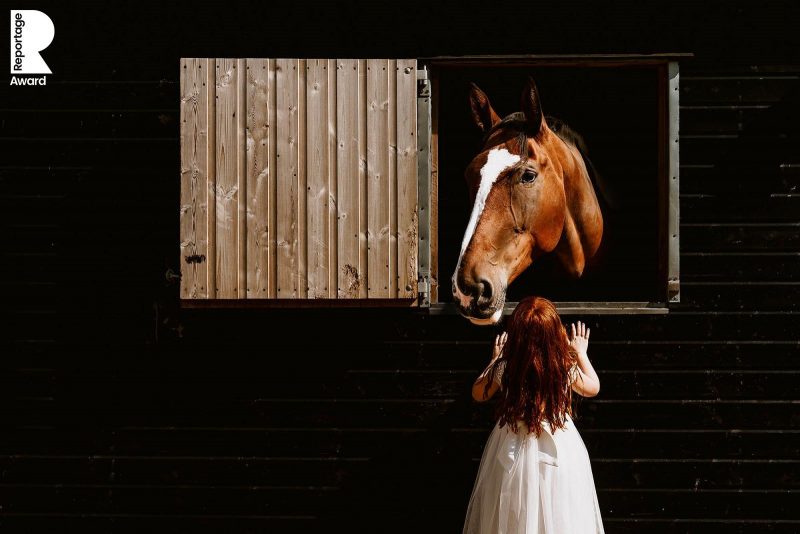
Alan Law: What was your school life like in general? Did you grow up in Liverpool, did you?
Andrew Keher: I did. Yeah. Born and raised. I lived in a little part of Liverpool called Fazakerley. Fazakerley.
Alan Law: That’s cool.
Andrew Keher: It was all right until I went to school in a different part of Liverpool. I went to school in south Liverpool called Bluecoat. If anyone listening is from Liverpool, they’ll know that that’s the best school in Liverpool. I don’t like to brag, but I still wear my lapel badge when I’m out, Bluecoat School for Boys. When I got there, the pupils asked me, “Where are you from, because you’re not from around this area?” I used to say, “I’m from Fazakerley.” They’d all kind of stop and look at me and go, “My god. It’s rough around there, isn’t it?” I’d be like, “No, it’s all right.” I realized as I’ve grown up it’s actually one of the roughest parts of Liverpool, Fazakerley.
Alan Law: Oh really?
Andrew Keher: My mom and dad are still there. It’s all right. It’s all right. Didn’t scar me too much.
Alan Law: You don’t sound that Scouse… Are you still in Liverpool now?
Andrew Keher: I am. Actually I’m slightly north of the city. I’m in a little village called Formby.
Alan Law: Was George from there?
Andrew Keher: George? George Formby. Possibly. Possibly. That’s a little bit before my time.
Alan Law: Sorry. Bad dad joke. Sorry. Sorry. Go on.
Andrew Keher: That’s all right. I’ve always lived in Liverpool. I’ve moved from Fazakerley to Crosby and then I’ve moved up to Formby. I’m gradually improving the post code, gradually moving up the rungs. That’s going to wind up some of my mates actually but yeah…
Alan Law: That’s funny. As a kid then, were you into photography? I read somewhere that you always wanted to be a police officer, bit different to wedding photography. Why the change in direction?
Andrew Keher: That was always my dream when I was a kid. I wanted to be a police man, wanted to be a police officer. It just sounds like a really cool job. Unfortunately, I was born pretty much as blind as a bat. My prescription was almost off the scale. I had to wear jam-jar glasses for school.
Alan Law: Right.
Andrew Keher: Unfortunately, I was about 1000% outside what you needed for the police. Unfortunately, I couldn’t go down that route. I had to find something else to do. It ended up being fairly normal working in an office, 9:00 to 5:00, nothing too exciting.
Andrew Keher: The photography thing, it’s a bit of a strange one because I’m not a photographer who was born with a camera in hand. I never had a camera until I was about 30. It’s never something that’s really interested me, but I got to a stage in my life where I was sat in my little office in work, working 9:00 to 5:00 for somebody else.
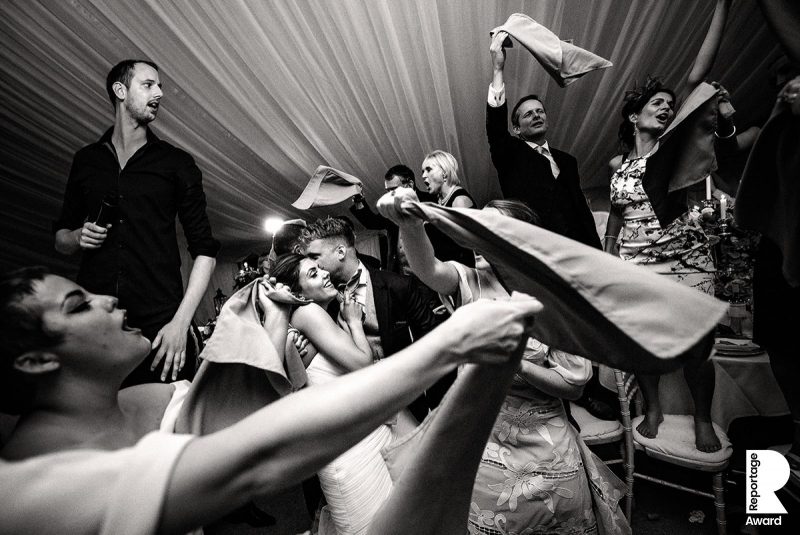
Andrew Keher: I remember just one day the boss came in and he told me off for something. He walked out and I sat there for a good half an hour, fuming. I was just so angry, and not with the boss, because I had cocked up. It was my fault. I remember thinking I don’t want to do this anymore. I’ve wasted, I think at that point it was nine years. Nine years sat in an office and going out and doing officey-type things. I thought I need a massive change because I’m becoming stressed and I’m becoming not a nice person. I’m falling out with my other half a lot. It’s not what I wanted to be. I’m a naturally happy positive person, believe it or not.
Alan Law: Just like your online persona.
Andrew Keher: Just like my online persona. I’ve always got my tongue firmly in cheek. I think people who know me know that basically I’m nice. I’m okay. I’m not too bad. I wasn’t in a good place at the time. I was just really, not depressed, not that far, but you know when you just kind of you don’t look forward to the day. You just don’t look forward to reading your emails, you don’t want to answer your phone to anybody. You just want to keep your head down, go home, and try not to think about work the next day.
Andrew Keher: I remember going to my cousin’s wedding. It was about seven years ago. I was at the wedding, I’d had a few beers, and I saw the wedding photographer. I remember thinking that’s a cool guy. Bear in mind, I’d had about eight rums at this point. To me, he looked cool. He was doing his thing. He had the slicked back hair, he had the Converse on. He had loads of gadgets, the flashes were going off. I thought that is just nothing I’ve ever seen before. In my mind, photographers are really boring, dull, old people who are uninteresting.
Andrew Keher: Seeing him in action, I kind of started to stalk him through the reception. At one point, he sat down at the back of the room with his Apple Mac laptop, MacBook, obviously, because that’s a cool thing to have. He started working on some of the pictures, and I was leaning over his shoulder. In my recollection, I was keeping a very respectful distance. In reality, I was probably leaning right over his shoulder, pointing with my finger saying, “Oh, mate, oh, zoom in there on that one, mate. Let me see that one.”
Andrew Keher: They just looked amazing. They looked like nothing I’d ever seen before. At that point I’d only ever seen my parents wedding album, my nan’s wedding album, and I had in my mind what wedding photographs were supposed to look like. When I was looking at this guy’s work, I was blown away. I thought that looks amazing, and he looks really cool.
Andrew Keher: The long and the short of it was I asked him, “How do you get into this job?” We had a little conversation. He was very polite but now that I’ve shot a lot of weddings, I know that he was just probably trying to get rid of me at the time. I ended up coming away from that, going back to work and thinking “Right, that’s a cool job. I want to do that job.” There was no build up to it, there was no ‘I was born with a camera in my hand.’ My dad had never given me a camera or anything like that. I have never been in a dark room in my life. I just saw someone that I thought was cool, and I thought I want to do what that person does. He looks like he was enjoying life.
Alan Law: That’s cool, though, man. How did you go from that then to learning the craft of it and starting a business?
Andrew Keher: From that point, luckily I’ve got a very patient, very understanding wife. She kind of saw that I wasn’t happy doing what I was doing. She must have saw something in my eyes that told her that this was something that wasn’t just a pipe dream. I was really enthusiastic about it, and it’s possibly because I hadn’t been enthusiastic about anything work related in a long time, in years. She said, “Okay, let’s look at the finances and see what we can do.” I put together a little shopping list. I Googled everything, I YouTubed everything, and I bought some bits and pieces. I remember at the time, my other half, Lucy, she actually fell pregnant with twins.
Alan Law: Wow.
Andrew Keher: They were born in August and I remember that Christmas, that December was when I got my delivery of all my camera equipment. My twins are six now, so I always know when I started. I started teaching myself photography just after the twins were born, so six years ago now. I really was, for most of it, self-taught. YouTube, as I think everyone knows, it’s an amazing resource. There’s so much on there. People just want to give information away. They want to share things. They want to teach.
Andrew Keher: This sounds terrible now. I spent most of my working day, I really hope my ex-boss is not going to tune into this. I spent most of my working day at my computer watching YouTube videos and reading reviews and looking at wedding blogs. The whole world was just opened up to me then. I had no idea what contemporary cool wedding photography was like. YouTube and tutorials and looking at people’s websites, that became my daily job for a good, I’m talking three months, four months.
Andrew Keher: I did just enough normal work to avoid getting a bollocking. In the rest of the time, I started to really, really absorb as much information as I could on weddings and how to shoot them. Eventually I realized that some wedding photographers offer workshops. Again, it’s something I’d never heard of at the time. Wedding photographers teaching other people how to become wedding photographers? That’s insane. Why would you do that?
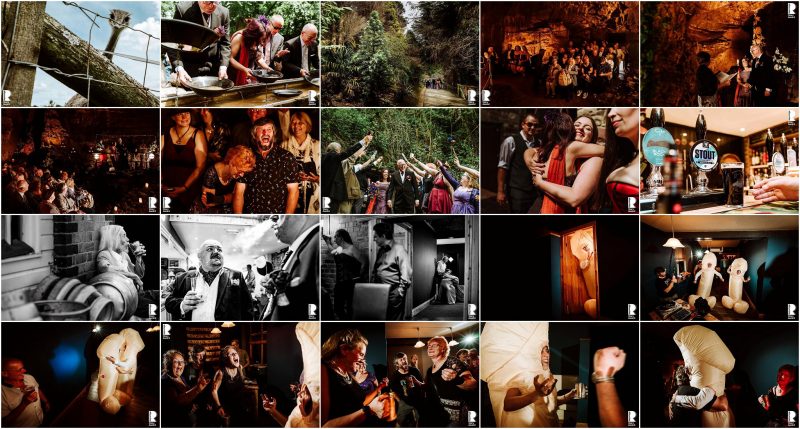
Andrew Keher: I actually signed up with the first photographer that I saw at my cousin’s wedding. He was running a workshop. Can I mention names at this point?
Alan Law: Yeah.
Andrew Keher: That was Jonny Draper.
Alan Law: Ah, cool.
Andrew Keher: Yeah.
Andrew Keher: That was Jonny Draper, the legend himself.
Alan Law: Awesome.
Andrew Keher: He’s just had a baby with his other half as well. Congratulations, Jonny, if you’re listening.
Alan Law: Congrats, man.
Andrew Keher: Welcome to the real world finally. No more late nights and cocktail parties and all that kind of shenanigans.
Alan Law: It must have been a good workshop then.
Andrew Keher: Yeah. It was excellent. It was just the right level for someone like me who had big dreams but zero technical capability. I don’t know how the exposure triangle works. That’s esoteric ancient knowledge that-
Alan Law: That’s a place where planes disappear to, isn’t it?
Andrew Keher: Exactly. Exactly. Yeah. That was a two day workshop and we went off and we shot some models and Jonny talked us through how he approaches the wedding, in his way of doing things. It was fantastic, and I went away full of beans and I was ready to push on. I did another course with Jonny, and from that point I met another photographer, David Stubbs. I don’t know why. I’m going to ask him this one day. He kind of took me under his wing.
Andrew Keher: He was established at this point, and he shot quite a few weddings. He kind of took me under his wing and mentored me a little bit and showed me some ropes and gave me the confidence to go out there and shoot. From that point I started to post my things on Facebook. I think we set up our business page. We put our little pictures on there from our workshops. We try and fake it till we make it. We show our best stuff, and we contact our family and if anyone’s getting married, we try and get in there, can we come along, can we take some pictures?
Andrew Keher: Anything and everything really, just to get me near a real wedding, and in the end, it was actually someone just a random person liked one of my photographs on Facebook. I clicked on their profile and it said they were engaged, and I messaged her and said, “I noticed you’re engaged. I was wondering if I could offer my services.” Something I’d never do now, but back then, I didn’t know the decorum of these situations. I just thought I can approach people and I’m just going to tell them what I want to do. She messaged me back and said that she couldn’t afford a wedding photographer. It was like it’s a sign. This is tailor made for me to step in now.
Andrew Keher: I messaged her back and said, “I’m going to come and photograph your wedding.” She said, “No, no, honestly the budget’s tight. We’ve got no money. It’s a small do. We’re an older couple. We’re not interested in the big do.” I said, “No, no, I want to come and photograph your wedding.” I probably said something like, “Every person deserves to have quality wedding photographs.”
Alan Law: Nice, nice line.
Andrew Keher: Not that I’d ever taken a quality wedding photograph in my life at that point. I thought you know what? If I approach this with as much heart and as much dedication and energy as I can, is that going to be a bad thing? I’m not going to charge her for it anyway, and she’s not going to get a wedding photographer. If I hadn’t had stepped in, she wouldn’t have had a wedding photographer. I thought it’s a sign. So I went and did it.
Alan Law: Then she said to you, “You can’t use any of the photos online.”
Andrew Keher: Yeah. Then she said, “Don’t use any of those pictures. I don’t like them.” From there, it kind of it filled me with a bit of confidence to approach other people, and a little bit of a blur because I was still working at the time and I was trying to juggle the 9:00 to 5:00 job with also shooting a couple of weddings. It suddenly started, and I’m sure lots of people say this, but it suddenly started to snowball, and I can’t quite remember the moment when it did, but all of a sudden, I remember looking at the diary and thinking oh my goodness, I’ve got 12 weddings booked in here for later this year and early next year.
Andrew Keher: These were people who hadn’t really seen much of a portfolio from me and they were actually going to pay me to come and do it. I had to kind of make a decision then what I was going to do. Do I want to try and do this full time? Do I want to keep going part time and use it as extra money and just slowly build up to it? It was thrust upon me in the end, the decision. It was not mine to make, because my little twins, my twin girls who were about six months old at this point, they helped me with my career. I took a video of them playing in their cots one night.
Alan Law: Oh yeah, I’m sure I’ve seen that video. Yeah.
Andrew Keher: Yeah. It ended up going viral anyway. They were playing peekaboo with each other.
Alan Law: Yeah, I’ve seen it (video embedded below).
[embedyt] https://www.youtube.com/watch?v=bzpkXFIrO6Y[/embedyt]
Andrew Keher: I recorded a very low quality video of it. I shoved it on Facebook, as you do, whenever your kids do anything cute. I woke up the next morning and it had 50,000 likes and comments and shares.
Alan Law: Wow. That’s mental.
Andrew Keher: I thought oh, okay, this is weird. What’s happened here? This is really weird. My phone’s going crazy with notifications, and I thought at the time, I thought this is cool. I’ll show people in work, my little girls have gone a little bit viral. By that afternoon, we were on something like a million views, hundred thousand shares. It had gone silly.
Andrew Keher: We got a phone call that evening. I got a phone call from BBC Northwest, and they wanted to come and interview us, the viral peekaboo twins. I think at the time, this is 2013 is it? 2014. Something like that. I think there was less viral videos than there is now. This was big news in our little circle in the Northwest. We said “Yeah. Come along.” The film crew turned up and they interviewed us and the girls were crawling around on the floor. The interviewer said to me, “What do you do for a living?” This mad rush of energy came over me and I said, “I’m a wedding photographer.” He said, “Oh, right, brilliant.”
Andrew Keher: The interview finished. My wife kind of leaned into me and said, “But you’re not a wedding photographer.” I was like, “Yes, but that sounds much cooler than saying I’m a quantity surveyor for a flooring company.” I thought nothing else of it. Went into work the next day and my boss called me into the office and said, “I saw on the news last night. What’s this about wedding photography?” I had to come clean. I said, “Look, I have been doing another job on the side. It’s not impacted my job at all.” Again, I hope he’s not listening to this. Sorry, Nigel. At one point I even had Lightroom installed on my office computer.
Andrew Keher: I came clean to Nigel and he said, and you know what, he was absolutely sound about it. He said, “That’s absolutely fine. Everyone’s gotta graft. Everyone’s got to do what they’ve got to do to get paid.” He was a proper entrepreneur, actually, my old boss. He was on board with it. From that point, now that I’d told him I was a wedding photographer I just thought why don’t I just go and be one? I mean, it was strange. I was toying with the idea so long, should I or shouldn’t I? Is this a real job to go to or should I stick with what’s safe? That salary coming in every week, it’s quite a hard habit to kick.
Alan Law: Especially when you’ve got twins as well.
Andrew Keher: Especially when you’ve got twins. I’ve never been self employed before in my life. It was all very strange. But I think sitting down with my boss and getting his blessing and he was saying, “You know what? That’s absolutely fine. You go and do what you’ve got to do.” Within three months, I handed in my notice and I went full time, in inverted commas, even though I didn’t have a full order book at the time. I left work and set up at home. Haven’t really looked back since.
Alan Law: No, man. I mean you’ve done so well. You’ve skyrocketed from there. Awards left, right, and center. You’ve got weddings coming up in, is it Morocco, Finland, Barbados, America and stuff? It’s amazing.
Andrew Keher: I’m getting around. I’m getting around.
Alan Law: Do you think then, I’m sure you would have quit at some point or other, your day job, but that kind of viral video, that was just a kind of impetus, a catalyst.
Andrew Keher: That was the catalyst, yeah. What I thought was I had to keep it secret from everyone, which was a bit of a silly attitude, I think, when I think back about it. I thought I have to keep it a secret. I couldn’t tell anyone that I also had a second job. It just got it out into the open. I realized that you know what? I get through the working week and then on a Friday night I’m filled with energy for what I’m about to do the next day. I thought that’s what I need to do. That’s the thing that is lighting the fire inside me.
Andrew Keher: I enjoyed school, but I was never one to do extracurricular activities or study when I didn’t need to study. Here I was all of a sudden spending every waking moment trying to learn something, 1:00 in the morning looking at YouTube videos on how to shoot in bright conditions or how to do this or how to do that, how to use an off camera flash, what’s the best make of radio trigger. At that point I didn’t own a trigger and I’m watching YouTube videos at 2:00 in the morning on which one’s the best one to buy.
Alan Law: Right. Yeah. You can tell you’ve got a passion for it if you’re doing that.
Andrew Keher: Yeah. I thought anybody who is passionate about something can make that something into a career. That’s what I’m trying to tell my boy at the moment. He’s 15 and he’s a typical teenager. He’s got no drive. There’s no desire to do anything. I’m saying to him, “Do you know what, Owen, you don’t have to have a career path laid out. You don’t have to do all these different subjects. If you can just find something that you’re energized about, and that could be something like woodworking or fitting curtains or making digital art or something that you’re passionate about and you are that keen about that you will actually go in your own time go and learn about it and practice it and look at other people’s stuff and go and do workshops about it, then you will make that into a career.” It doesn’t matter what it is. It suddenly hit me that’s what I needed to go and do. I handed in my notice, went full time and here we are.

Alan Law: And you’ve not looked back. It’s awesome, man. Honestly, it’s brilliant. That’s cool. It’s so cool. I’m going to change tack a bit slightly. Do you have a favorite joke?
Andrew Keher: A favorite joke? Oh my goodness. This is going to sound terrible, but all my jokes are like dad jokes now. I used to cringe at my own dad’s jokes. That’s where I’ve picked up my sense of humor from is my dad. He’s not one for telling jokes, but he will turn the situation into a joke. I think that’s what I do with my children, especially now that I’ve got a 15 year old lad. Everything I do now is to make him cringe. My life’s mission is to make Owen kind of run away in fear and disgust about the jokes that I’ve just made. While I don’t have a joke, I’ll make him cringe. Anything I can do to make him cringe.
Alan Law: Is fair game.
Andrew Keher: His friends have just started using the Alexa devices now to call each other. The ones with the screens on and they’ll have video calls with each other. Unfortunately for Owen, every Alexa in the house will ring when one of his friends calls. It’s a race against time to see who can answer one first. Owen runs to his room, I run to the kitchen and start stripping off, because I need to really terrify whoever’s on the other end of this call.
Alan Law: Scary. Remind me never to call you on Alexa.
Andrew Keher: I’m fully invested in the dad way of life now. There’s a reason that he hasn’t invited any girls back to the house, any of his mates back to the house. He knows that I work from home and I’m going to be in.
Alan Law: That’s funny. If you could be someone else for a day, living or dead, who would you be?
Andrew Keher: If I was going to be somebody, wow. Okay. Can it be a fictional character or has it got to be a real character?
Alan Law: I think it can be anyone. Yeah. Anyone.
Andrew Keher: Okay. I was listening to one of your other podcasts, Mr. Fox.
Alan Law: Oh yeah.
Andrew Keher: Mr. Fox stole my person.
Alan Law: What Arnie?
Andrew Keher: Yes. He’s stolen Arnie. I remember thinking at the time, oh man, I hope Alan doesn’t ask me that one now, because he’s stolen my idea. I was watching one of my favorite films last night. It’s an obscure one.
Alan Law: It’s not Predator II.
Andrew Keher: It’s not Predator II. It’s a series called the Evil Dead. The old school Evil Dead. There’s a character called Ash. He’s the lead. Bruce Campbell, the actor, he’s a cult hero. If I could be like anyone, it would be like Ash. The reason is he’s slightly daft, he’s a bit cringy. I think he’s the embodiment of a dad joke, but in all the films he’s fighting about the nightmare hoards of the undead. The way that he works is that if there’s a problem, you don’t sweat it. You attack it with a chainsaw and a shotgun.
Alan Law: Good life advice.
Andrew Keher: Honestly, in a way he kind of ruined … I love horror films and Ash from Evil Dead has ruined modern horror films for me because I see so many main characters who are terrified, hiding under the bed, sweating, running away. I always think what would Ash do? Ash’d pick something up and hit the zombie over the head or punch the vampire in the face or kick the monster down the stairs. If I could be someone, I think I’d like to be a bit like Ash.
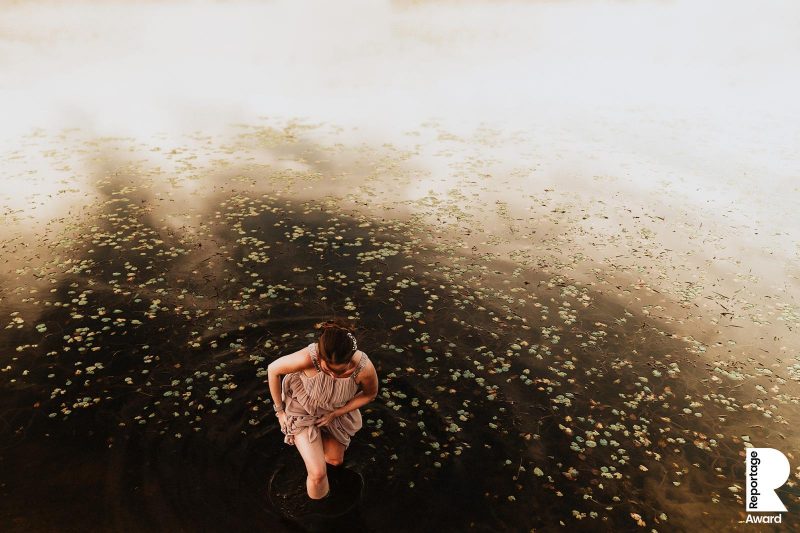
Alan Law: Okay. That’s cool. That is cool. Cool. Let’s go back to your photography. Do you have any regrets in your photography career so far at all?
Andrew Keher: I’ve got a couple. I’ve got a couple. I’ve got one recent regret and incident where I forgot rule number one that I think governs all wedding photographers. Not wedding photographers. I think it should govern everyone in general. It’s the rule for life. Don’t be a dick. Don’t be a dick. I forgot this rule. I forgot this rule. It’s a lonely job being a wedding photographer. For me, anyway. I don’t know-
Alan Law: Definitely. Yeah.
Andrew Keher: You’re sat behind your computer and you’re looking at the world through 27 inches or whatever this monitor is. You can get a little bit of tunnel vision and you can forget that we’re all just trying to do our best for our couples and we’re all just trying to get on in life. Basically we’re all just trying to pay the bills. That’s what it’s all about essentially.
Andrew Keher: It just so happens that we’re trying to do it in a way that we love. When you’re sat behind your computer at 11:00 at night, basically I made a few comments about a photographer that I like, a photography team in a decent sized group in the northwest on Facebook. I saw a few things in some of their recent work. Instead of just moving on with my life I thought I’m going to have a little winge about this in the group. As usual, the things I do online tend to explode in my face. They snowball out of all proportions. Before I know it, I’m getting private messages from the photographer in question.
Alan Law: Oh right. Nightmare.
Andrew Keher: Asking, “Hi, I’ve heard through the grapevine that you’ve got some questions about our work.” They were very polite about it. It was very humbling, because I was suddenly dealing with a real person. Not just their work, and not just their celebrity status and a faceless entity on the other side of the world. All of a sudden they’re chatting to me on Facebook, basically, “What’s your problem?”
Andrew Keher: I ended this conversation, and it really, really changed my attitude and the way that I view other photographers and the way that I think I’m going to operate going forward, because I understand now that why do I waste the energy, why am I burning mental calories over such a silly thing? Not just the silly thing, which I won’t go into, but why then do I feel the need to go and gossip about it with other people, with other photographers? You know when you just feel about this big? I thought I’ve broken the first rule that I’ve always tried to live by which has been don’t be a dick. I have been a massive dick there.
Andrew Keher: I don’t understand the thought process behind it. Now that I’m looking at it in the cold light of day, people do whatever they’ve got to do. We’re just trying to make cool photos for couples. We just want our couples to look at their photos and go, “Yeah, we had an awesome wedding. I’m going to enjoy looking at these in the future. I can’t wait to show these to my kids and my grandkids.” Why do I feel the need to pick holes in somebody else’s work just because they’re a rockstar and they get all the accolades and all the rest of it?
Andrew Keher: I need to change my attitude and I need to look at it and say, “What should I have done there instead?” What I should have done is if I was that bothered is message the photographer and say, “I’m interested in such a picture and I was wondering how you made that or I’ve noticed this about it.” I don’t know. I’m still kind of debating how I should have played it.
Alan Law: Just had a gin and tonic man. Gin and tonic.
Andrew Keher: Yeah. The problem was that I’d had about four rums and coke. That’s why I thought being a gossip was the right move. I’m a bit of a knobhead in my personal dealings on Facebook. I think everyone who knows me knows that. On my own page, I love getting stuck in. I love winding people up. I love antagonizing people. How I haven’t got blocked by most of my colleagues, most of my peers in the industry yet, I don’t know. Actually, I think that they can see through the words and see that there’s heart on the other side of it, and I’m only playing. Really, if they’d needed it I’d crawl through broken glass for them.
Alan Law: I’ve met you in real life, man, and you’re a lovely guy, so I know you’re lovely.
Andrew Keher: Thank you. I let my snidey personality go into my business dealings and that was a mistake. That was a big mistake. That is my regret. If anything comes from this, it’s that now I’m going to look at people’s work and I’m not going to question the way that they do things. I’m going to try and take inspiration from it and I’m going to use my energy to look at my stuff and say, “I know the reason why I’m getting techy about what I’ve just seen. I know the reason. It’s because in my mind, they’re, in inverted commas, “doing better than me.”” If that makes any sense.
Alan Law: Yeah. I know what you mean.
Andrew Keher: That’s not a quantifiable thing, because we all measure success differently. For some people, getting bookings and getting paid, that is food and drink and mortgage payments and they need to do what they’ve got to do. For other people it’s a hobby. For other people it’s a creative outlet. We all have our reasons for doing it and who am I to get involved with stuff like that?
Andrew Keher: I know it sounds ridiculous from such a weird instance, but I really do think I’ve come out of the other side with a different attitude about how I approach things in the future. I want to spend energy on improving my work and improving the way that I do things, not trying to tear down what other people are doing.
Andrew Keher: There’s enough work in this world for everyone. There’s enough couples getting married. Even if I don’t reach my target amount of weddings, rather than being salty about it and lashing out at other people, I should be looking at what else can I do? What can I do? What am I good at? I can take pictures of families, I can take pictures of people, I can do a project, I can do a styled shoot, I can get out of my comfort zone. That’s how I want to go forward. I want to work on me and not worry about what other people are doing, I suppose. Sorry, that was a big answer for-
Alan Law: No, that’s cool. That’s so interesting, man. That’s so interesting. We all do little things like that that we kind of regret as well. Thank you for talking about it. That was awesome.
Andrew Keher: No worries. It’s a difficult one, because in the aftermath of it everyone was still gossiping about it and everyone is still tagging me on various related incidents. I want to change that person. I don’t want to get involved in that anymore.
Alan Law: Hopefully they’ll listen to this and they can put a stop to that.
Andrew Keher: They’re going to listen to this and tag me in everything now. I know how it works. I’m the biggest troll in the world and now I’m going to get it back.
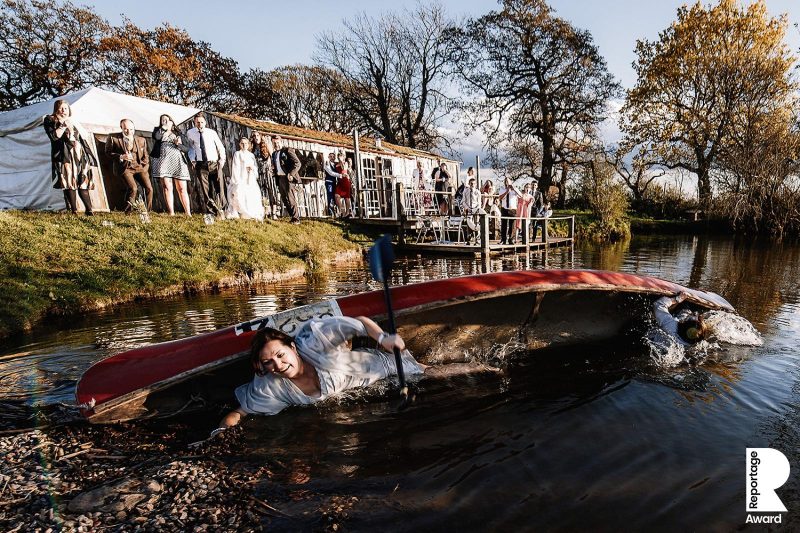
Alan Law: Let’s change tack again slightly. What’s the most bizarre thing you’ve personally seen at a wedding? I love all of your Reportage Awards you shot. You’ve got a bride and groom falling off a boat into the water (image above).
Andrew Keher: Oh yeah. That was amazing. That was amazing.
Alan Law: What happened there? Were they happy that you captured that image of them?
Andrew Keher: It was actually the mother of the bride and the mother of the groom in a canoe. We were at a tipi wedding and it was in the countryside somewhere and it had a boat and lake. Just prior to this picture being taken, the bride was in a canoe, the groom was in a canoe, the groomsmen were out there, everyone was having a little paddle around and it was all very civilized. Then the mothers wanted to have a go. They sat in the canoe. I was kind of at the lakeside. Fortunately for the mothers it was the groomsmen who, in boating terms, to cast off.
Alan Law: I don’t know.
Andrew Keher: Well, anyway, they pushed the canoe out into the lake, and obviously this is six big lads with two small mothers in the boat. Yeah. They pushed off a little bit too hard. The boat instantly capsized and both moms in full mom regalia, the embroidered dresses, the embroidered suit jackets, the hats, they went straight into the drink headfirst.
Alan Law: And you were there and you got it.
Andrew Keher: I was lucky enough to be on the bank, and there’s a video kicking around of the moment, someone was videoing it on their phone. I am so proud of my reaction speed. I look like I’m daydreaming and as the boat tips, I drop down to the water and take the shot and yeah. We got it just as they were tipping into the water. It was fantastic.
Alan Law: It’s an awesome shot. I’ll put it in the post as well so people can see it. Did people come up to you straight away, “Did you get it? Did you get it?”
Andrew Keher: Yes. Pretty much. After the horror had died down.
Alan Law: No drownings. No drownings.
Andrew Keher: No drownings. The best part of that was the bride, the groom, the guests everyone was lined up on the side watching. It was amazing.
Alan Law: Did you get any feedback about that image? Did they say that they love it?
Andrew Keher: I get tagged in by one of the moms every year now. It was a couple of years ago. Every now and again I get a little mention or a little tag when that video pops up somewhere or that picture pops up. I think when I won that Reportage Award, the mother who fell in the lake, she actually shared that picture on her own timeline and tagged the other mom in and said, “Oh, we’re famous again.” I think now that they’re dry and warm, they can laugh about it.
Alan Law: Yeah. That’s so cool that you got it, man. That’s like almost epitomizes documentary coverage, I think, getting all those moments. Not the prettiest ones, but they’re the ones they’re going to look back at and laugh and love.
Andrew Keher: Yeah. Absolutely. Absolutely. It’s getting stuck in, and although on the video replay it does look like I’ve switched off slightly, I think you’ve constantly got to be looking at the situation and always thinking what could go wrong here, what could go wrong here, what could go wrong here and preempt the moment.
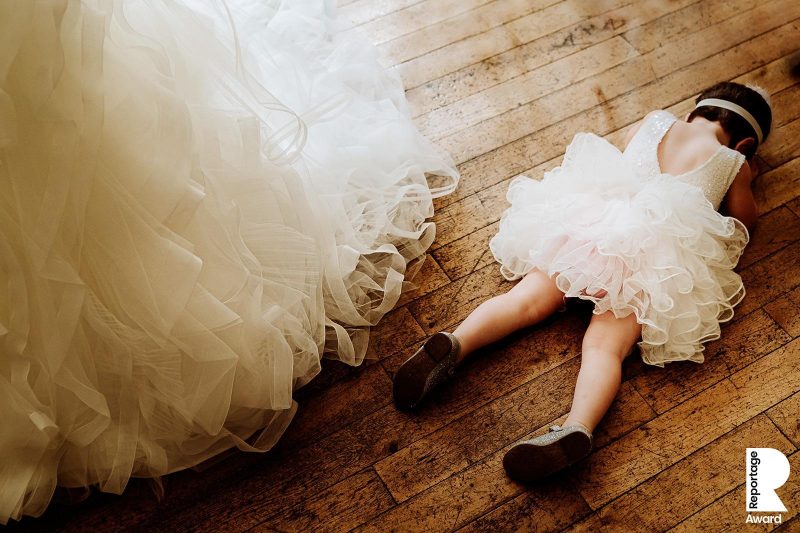
Alan Law: That’s cool, because it’s going to lead me on actually, because I’ve only got time I think for one more question. I was going to ask you specifically because I’m actually really interested to learn from you. As a chance for you to give back after learning from YouTube and books and stuff. What would be your top tips for someone to become better at the documentary side?
Andrew Keher: This is-
Alan Law: You’re so good, man. Sorry. You’re so good. I’d love to learn from you. What are you top tips?
Andrew Keher: Wow. Okay. I think the biggest takeaway, and this is one that always causes a divide, this one. You’ll see two different schools of thought on it. One camp says, “Well, if you take more than two shots of a moment, then you’re overshooting.” Even though they’ve typed that on Facebook, that’s the voice I can imagine them using at the time.
Andrew Keher: Then there’s me and there’s other photographers I know, there’s the other way of looking at it, which is if a moment’s happening, then you shoot the shit out of it. You shoot it, you take it from eye level, then crouch down, the move to the side, then lift your camera over your head. Circle the moment. If the moments’ still going on, don’t give up on it. Don’t give up on it. Don’t be afraid to keep shooting. Shoot through the moment, keep going, the look behind you. Look through the moment, don’t forget that other people are going to be looking at it, see what they’re doing. You can turn one little moment, which is a lovely moment, it’s the gran and the bride having a little hug and a kiss. You can turn that moment into a sequence that meaningful, it’s all joined together.
Andrew Keher: I think you can’t listen to the people who say, “Real photographers don’t overshoot,” or, “Real photographers only need one shot to do it.” When I started, I had this thing in my head. I thought that all these world class photographers, they’d rock up to a scene, take one picture, and then walk to the next scene.
Alan Law: Yep.
Andrew Keher: I very quickly had that thrashed out of me. I take stupid amounts of pictures at every wedding. It’s not because I’m rubbish at what I do. It’s just because I think when you’re not posing the moment, when you’re not getting involved, you owe it to the couple to do the best that you can to record that moment in the most creative and memorable way possible.
Andrew Keher: Unfortunately, that means you have to work your ass off for it. You have to get down, you have to get in there, you have to move away, you have to climb on things. Just play with it and don’t worry about the cull afterwards. It takes a couple of hours, doesn’t it, to go through your photographs, but don’t worry about it too much.
Andrew Keher: Just shoot the moment and keep shooting because honestly the times when I don’t shoot through it, and I’m going through it on Photomechanic or whatever, and I’ve still taken 10 pictures but none of them are framed well enough or people are blinking and I kick myself and I think I could have kept going and I could have circled around, I could have tried something different and really, really pushed the boat on that one.
Andrew Keher: Yeah. I think that would be my first bit of advice is don’t worry about what other photographers might say if you’re talking about how many shots do you need to take, because it doesn’t matter. If people can get awesome moments in one shot, then I do take my hat off to them. They’re amazing. I’m definitely in the other camp where-
Alan Law: So am I though, man. I’m just nodding the whole of that. I totally agree with you. Totally agree.
Andrew Keher: That stemmed from, I don’t want to give you a plug. Can I give you a plug, is that allowed? I’ve watched a lot of YouTube and I’ve done a lot of workshops and I’ve shot a lot of weddings now. Your workshop that I did, Law School, I don’t know how many years ago that was now. Are we talking four years ago?
Alan Law: I think it was about four years. Yeah.
Andrew Keher: That is the one that sticks with me every single week.
Alan Law: You don’t have to say this just because we’re talking.
Andrew Keher: No, if someone else was talking to me I would say the same thing. I’ve said this to other people as well. I can’t remember much from the workshop because it’s four years ago, but you said something that was like … I’m not going to give away details for people who are not on the workshop?
Alan Law: Oh no, course, you can say whatever you want. Of course.
Andrew Keher: You said you want each frame to be as interesting as possible. I think it was almost a … The comment might have come from somebody else that was talking to you and you made a throw away comment back to them. I don’t even know if this was part of the class, but it was something you said. You said that you would want every image in your set, in your gallery, to be interesting enough so that if the couple were to share that picture with somebody, it would stand on its own two feet.
Andrew Keher: That’s how I want to have my galleries look. It’s hard, in fact, it’s impossible. It’s impossible. I think I’m trying to make those frames as interesting as I can. That was something you said to someone. You want each picture to stand on its own two feet so that if the couple shared it, then it’s not a problem, because it’s a cool picture. It’s an interesting picture. It’s not a boring image. You’ve actually put some thought into it. You’ve played around with the composition. Yeah. Four years later, I’m still culling my pictures thinking if the bride shared this, would I be happy? That kind of guides me. You’re still guiding me, Alan, all these years later.
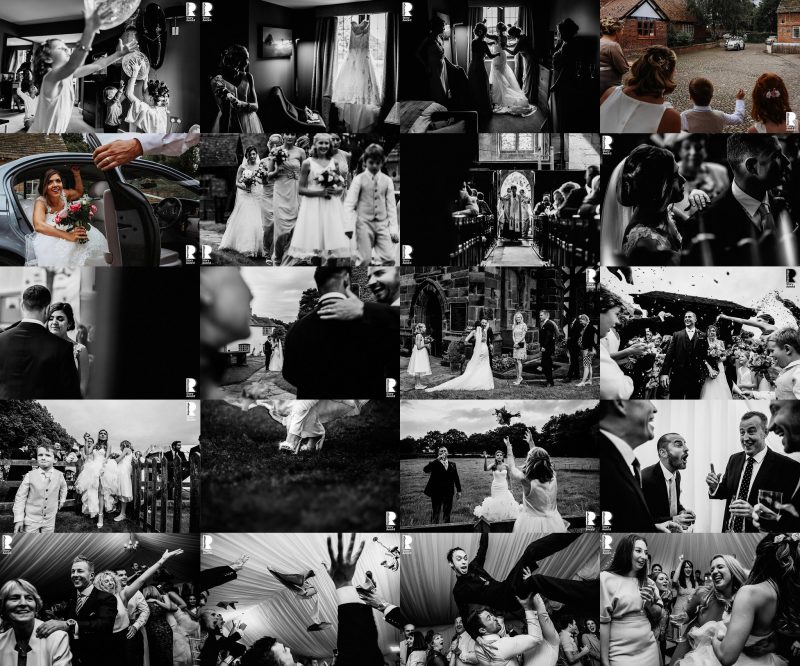
Alan Law: That’s very cool, man. You’re just without me and without that bit of advice, you’re just nailing it with your Story Awards. Exactly. You’re getting all that creativity into all those different elements of the day. You’re just rocking it man.
Andrew Keher: I think the Story Awards are a fantastic idea. It’s something that, I think you’ve cornered it, because nobody else is doing it. I’ve seen a couple of other award sites. I don’t know what the term for them is. You can see them toying with the idea in their Facebook groups. Should we have a kind of award where you have to show a sequence of pictures? There’s been some resistance from the communities there, and I think I know why. Can I put my conspiracy hat on for a second?
Alan Law: You can put that hat on.
Andrew Keher: I think that the market is quite saturated and enamored of these one shot heroic wow picture of a backlit bride and groom with reflections and it all looks kind of awesome, which I am as well. I mean, I still live by the rule of I just want to take cool photos. I don’t put down what anyone else wants to do anymore. I’ve had my moment. I still want to take cool and creative pictures as well where you play around with lights and reflections and things.
Alan Law: Yeah.
Andrew Keher: But I think that people are so used to those pictures that the thought of trying to enter a sequence of 20 odd images that each stand on their own two feet that are not going to put a judge off, that tell a story, oh my god, no, they can’t get their heads around that. I think reading between the lines, that is the attitude from a lot of people. I love that you’ve started the Story Awards. I am absolutely buzzing that I’ve managed to win a few of them. For me, the Story Award, they’re the ones. It’s not just that you need 20 good images, you’ve got 20 opportunities there to put somebody off.
Alan Law: That’s so true.
Andrew Keher: I think I read one of the interviews with a judge, and I think they said that if one image doesn’t fit, if one image doesn’t tell a story or convey the message, it feels although it’s probably not posed, if it feels a little bit posey, then it takes away from the story and they move onto the next one. You’ve got to be on your game to win one of those. I love those. I think I’ve mentioned in your group a few times that they should be worth bonus points on the leader board. I’m sure that’s being taken into consideration.
Alan Law: All your feedback’s always taken into consideration. That’s cool. They are so difficult to win, as well. So difficult.
Andrew Keher: They’re the ones that I actually like looking through, as well. I like looking at awards. I like seeing the general thing. Usually it’s when I haven’t won one and I’m looking through them going well, yeah, okay, they are pretty good. Okay, fine. I need to up my game for next month. Yeah. I always start off with a bad attitude and by the end of the gallery I’m like okay yeah, they were shit hot. Okay. Fair enough. The story ones, I actually enjoy looking at them anyway. I think they’re brilliant.
Alan Law: That’s cool.
Andrew Keher: A really good test for anyone who’s entering the awards or thinking about entering them or joining up, those Story Awards, they really make you think about what you’re entering and the sequence. It’s really useful for your blogs as well. I don’t know about you, but I suffer sometimes from overpopulating the blog. I could definitely trim some fat from some of mine. I think the exercise of putting these story awards together and trying to trim down an enormous wedding to just 20 images, I mean, that’s really useful for when I put the blogs together because I’m almost looking at these blogs as next month I might enter this blog into the Story Awards.
Alan Law: Yeah. That’s cool.
Andrew Keher: How much can I trim this down so I don’t have to do any work next month, especially given the complexity of the This is Reportage entering system.
Alan Law: Which is not complex.
Andrew Keher: Unbelievable. You’ve assured me that the developers are going to sort out a big red button just for me. You can add it just into my account if you want.
Alan Law: Okay. Just for you. Oh man, Andrew, honestly, we’re out of time, I could talk to you for ages. That was so good, so interesting. Thank you for that. Thank you for your time and openness and honesty. Honestly it was brilliant.
Andrew Keher: Thank you so much for having me on. I’m a little bit star struck. You’re my main man. You’re my number one.
Alan Law: It’s a total honour to have you on this, it really is, dude. It really is.
Andrew Keher: No worries, mate. No worries. Keep up the good work. I’m loving the podcasts. Again, I think I mentioned this to you. This is the first podcast that I’ve started listening to as well. My eyes, my ears have been opened to a world of opportunity. People do podcasts and I’m listening to them and I’m learning things.
Alan Law: People are going to learn from yours, man. People are going to learn from yours. They really will.
Andrew Keher: I hope I don’t turn off too many listeners.
Alan Law: No, man. It’s great. Honestly, so good. Hopefully I’ll catch up with you soon, man.
Andrew Keher: Yeah. No worries. Have a good party next week.
Alan Law: Cheers, man. I’ll see you soon.
Andrew Keher: See you later.
Alan Law: Bye-bye.
Andrew Keher: Cheerio. Cheerio.
***********************************************************
We thank Andrew again so much for this; such a great interview!
If you enjoyed listening to this, you can find all our other wedding photography podcast episodes – with transcripts, too – over here. You can also subscribe to our Podcast over on iTunes. And, if you *really* enjoyed it, we honestly would be so grateful if you could leave us a little review over on iTunes.
Would you like to join us here at This is Reportage? Collection Thirteen is open for submissions now; this will be the first of our six Collections of 2020, so if you’d like to get on our Top 100 Photographer list for next year (you can see 2019’s Top 100 over here), then now is a great time join. Members receive 60 Reportage Award and 18 Story Award entries per year, an unlimited number of images shown on your profile, exclusive discounts and deals on wedding photography-related services/products, and much more…
